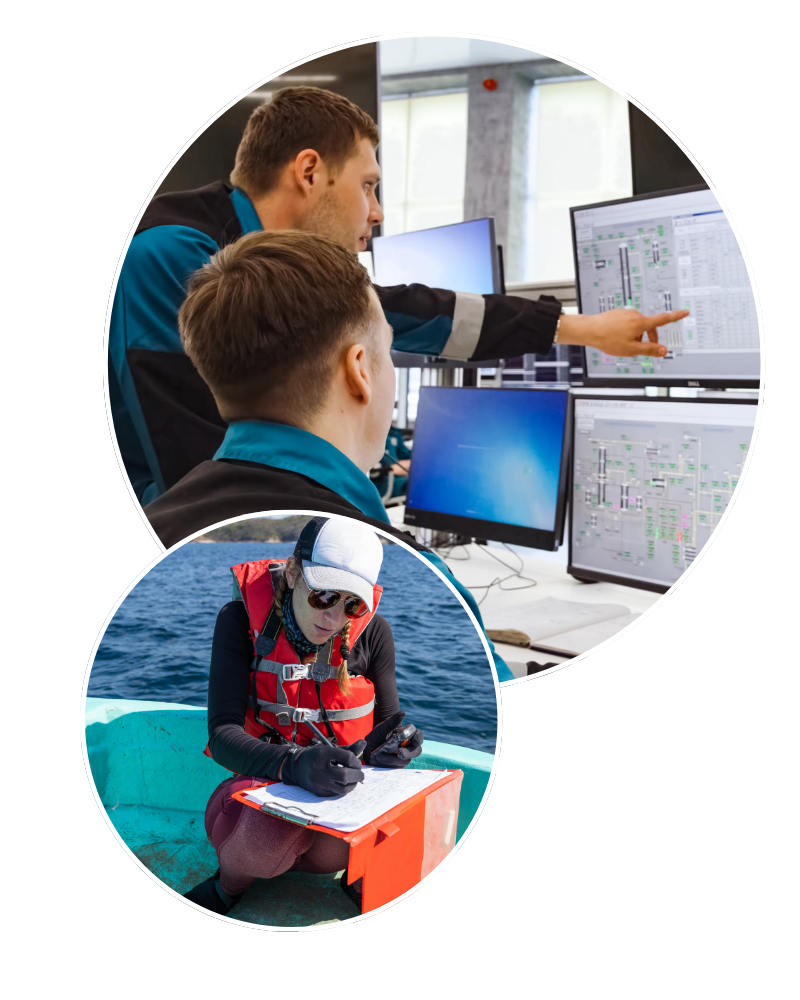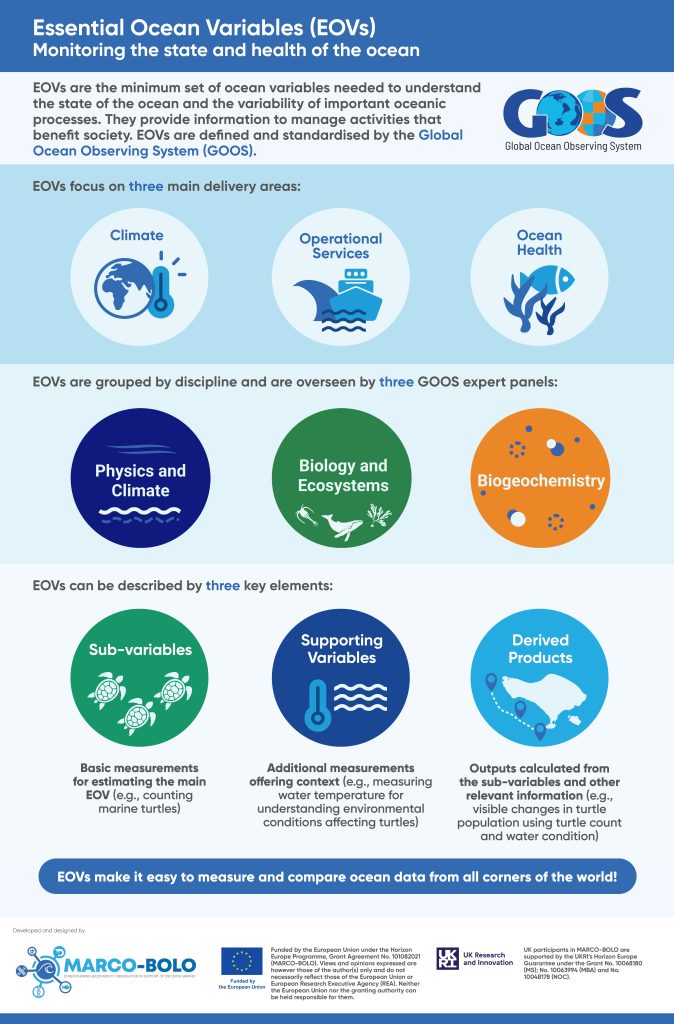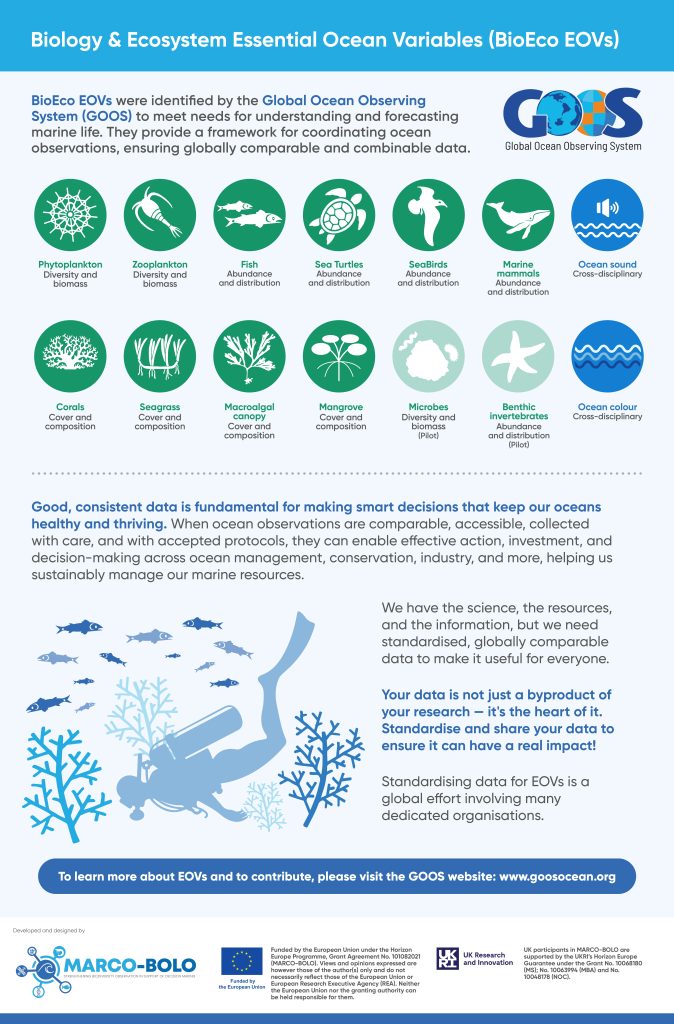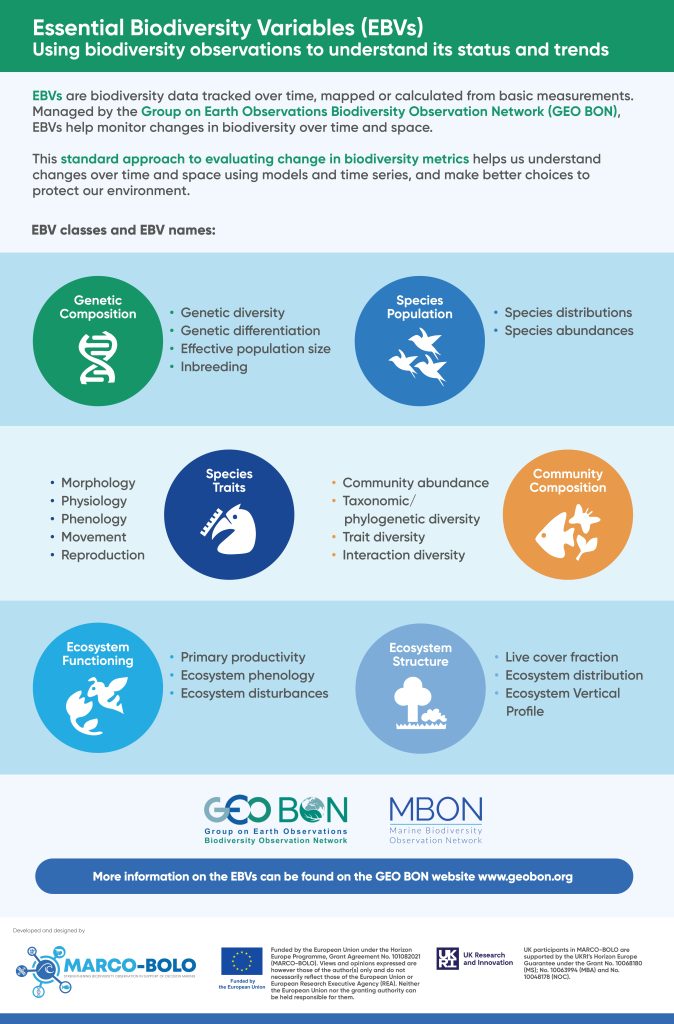The Data Challenge
Biodiversity data is often scattered, stored in incompatible formats, or missing key context. These issues make it difficult to compare trends, assess threats, or take timely action.
How MARCO-BOLO Helps
MARCO-BOLO addresses these challenges by improving how aquatic biodiversity data is collected, structured, and shared. The project supports scientists, policymakers, and data managers with tools and frameworks that make biodiversity monitoring more consistent, comparable, and policy-relevant.
Its work focuses on:
- Monitoring Workflows – Connecting local to continental data collection.
- FAIR Data Principles – Making biodiversity data Findable, Accessible, Interoperable, and Reusable.
- Policy Alignment – Supporting EU and global biodiversity strategies.
- Policy Alignment – Supporting EU and global biodiversity strategies.
Shared Frameworks for Tracking Change
The below EOV and EBV infographics explain how shared monitoring frameworks help track biodiversity change across regions and time. These frameworks, developed with partners like GOOS, GEO BON, and MBON, support more consistent and scalable biodiversity observation.
Your Toolkit for Smarter Biodiversity Decisions
1. The MARCO-BOLO Data Management Plan (DMP)
The MARCO-BOLO Data Management Plan goes beyond FAIR principles. It provides a practical guide for preserving data long after the project ends, ensuring it is archived in trusted, long-term repositories. Endorsed by the European Commission, the DMP is already being adopted and adapted by other EU-funded projects to standardise data practices across disciplines and borders.
2. Policy Brief – Addressing Challenges in the Biodiversity Monitoring Data Ecosystem
Insights from a stakeholder survey, summarised in the Policy Brief – Addressing Challenges in the Biodiversity Monitoring Data Ecosystem – reveal common barriers to effective data use. With over 850 responses from universities, government bodies, NGOs, businesses, and EU agencies, the survey highlights issues such as inconsistent formats, limited access to long-term archives, and a lack of practical tools.

What you can do
Standardise Your Data
Encourage fellow researchers to store and share biodiversity data in consistent, accessible ways.
Recommend the DMP
Share the MARCO-BOLO Data Management Plan with new EU-funded projects to promote best practices.
Understand EOVs & EBVs
Learn what Essential Ocean Variables and Essential Biodiversity Variables are and how they support long-term monitoring.
Use Trusted Repositories
Identify and utilise reliable biodiversity data repositories to ensure long-term access.
Engage with Stakeholder Insights
Read the stakeholder report and help develop new tools that respond to real-world needs.
Stay Updated
Visit project results and open-access publications regularly to keep up with new outputs and opportunities.
When biodiversity data is well structured, preserved, and openly shared, it becomes a powerful tool: for science, for policy, and for protecting the ecosystems we all depend on.


